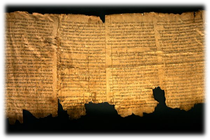
Some perspective will serve us well.
Did you know that there are no surviving original manuscripts of any of William Shakespeare’s 37 plays (written in the 1600s) and scholars have been forced to fill some gaps in his work? You don’t hear complaints of unreliability there. Julius Caesar’s The Gaelic Wars - there are ten relatively ancient manuscripts in existence. The earliest of them, there’s a thousand year gap between when Caesar died and when that manuscript was copied. They’re considered reliable. Herodotus’ History, eight manuscripts. Earliest one, 1,350 years after he died. It’s quoted all the time, considered reliable. The Harry Potter series, over 500 million copies sold. Not relevant here, but so-well known…
Homer’s Iliad, the most renowned book of ancient Greece, is the second best-preserved literary work of all antiquity, with 643 copies of manuscript support discovered to date. No originals, just copies. Now in those copies, there are 764 disputed lines of text. In the New Testament – less than 100 lines of text have questions involving a few words here and there, and none have to do with points of doctrine. The earliest manuscripts date to the 3rd & 4th century AD. Total number of manuscripts for the best-preserved literary work in all of history – the New Testament? More than 5000 Greek manuscripts. Add manuscripts in other languages – Latin, etc. – and there are over 24,000 ancient manuscripts in existence.
What about the Old Testament? The ancient Jews were fanatical about careful copying of the OT Scriptures. They copied letter by letter, and if they finished a scroll, say Genesis, they then counted all the letters and if they were off by even one letter, they burned it and started over. Back in the 1940s, the earliest OT manuscript we had was from about 1000 AD, 1000 years after the NT was written. Then in 1947, the Dead Sea Scrolls were discovered, all kinds of OT manuscripts that dated to the time of Christ, including an entire scroll of Isaiah. Comparisons were made between these documents dated 1000 years apart – virtually identical, no changes. God preserves his Word.
These are historical evidences/proofs, if you will, for the reliability of the Word of God. But the real proof is in the Word itself, the power there that changes lives. It makes wise for salvation, it is powerful and practical and useful for everyday life. It is God-breathed. It is the Word of God himself. And if there’s a challenge to confront, if there’s encouragement needed, there’s always a Word to help. Here are just a few:
“God is our refuge and strength, an ever-present help in trouble” (Psalm 46:1). “God will meet all your needs according to his glorious riches in Christ Jesus” (Philippians 4:19). “(God) will not let you be tempted beyond what you can bear” (1 Corinthians 10:13). “Fear not, for I have redeemed you; I have summoned you by name; you are mine” (Isaiah 43:1) “I am with you always” (Matthew 28:20). “How great is the love the Father has lavished on us, that we should be called children of God. And that is what we are” (1 John 3:1).
Praise God for his faithful, powerful, unchanging Word!
Pastor Stephen Luchterhand

 RSS Feed
RSS Feed

